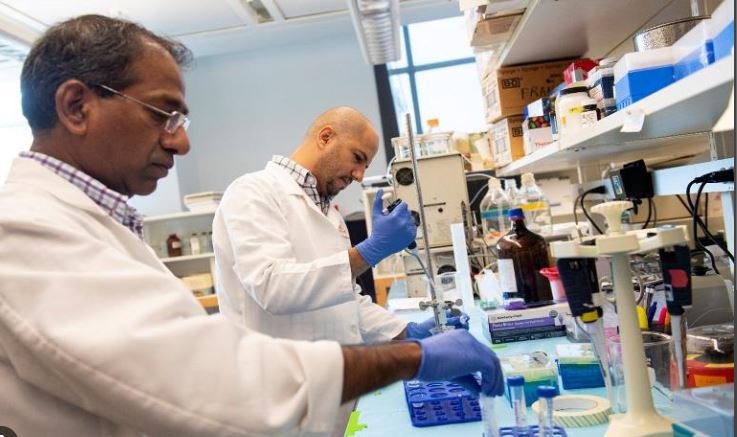Cancer research milestones have transformed the way we understand, diagnose, and treat cancer. Over the years, scientists and medical professionals have made groundbreaking discoveries that have significantly improved patient outcomes and offered new hope in the battle against this complex disease. In this article, we explore some of the most pivotal milestones in cancer research that have shaped modern oncology.

The Discovery of Chemotherapy
To begin with, the discovery of chemotherapy marked a major milestone in cancer research. During the 1940s, researchers identified nitrogen mustard, a compound initially used in warfare, as an effective treatment for cancer. This discovery led to the development of the first chemotherapy drugs, which became a cornerstone in the fight against cancer. Chemotherapy revolutionized cancer treatment by targeting rapidly dividing cancer cells, offering a powerful tool to combat various forms of the disease.
The Role of Radiation Therapy
Moreover, the development of radiation therapy represented another significant advance in cancer treatment. In the early 20th century, scientists discovered that high-energy radiation could shrink tumors and kill cancer cells. This finding paved the way for radiation therapy to become a standard treatment option for many types of cancer. Over time, advancements in technology have made radiation therapy more precise and effective, reducing damage to healthy tissues and improving patient outcomes.
The Genetic Basis of Cancer
In addition, the understanding of the genetic basis of cancer has profoundly influenced cancer research. In the 1970s, scientists discovered oncogenes—genes that, when mutated, can cause normal cells to become cancerous. This breakthrough led to the realization that cancer is fundamentally a genetic disease, driven by mutations in specific genes. As a result, researchers began developing targeted therapies that specifically attack cancer cells with certain genetic mutations, offering more personalized and effective treatment options.
The Development of Immunotherapy
Furthermore, the development of immunotherapy has revolutionized cancer treatment in recent years. Immunotherapy harnesses the body’s immune system to fight cancer, offering a novel approach to treatment. One of the most significant breakthroughs in this field was the approval of immune checkpoint inhibitors, which have shown remarkable success in treating cancers that were previously resistant to conventional therapies. Immunotherapy represents a new era in oncology, providing hope for long-term remission and even cures for some patients.
Advancements in Cancer Screening
Additionally, advancements in cancer screening have played a crucial role in early detection and prevention. The introduction of screening tests, such as mammography for breast cancer and colonoscopy for colorectal cancer, has significantly reduced mortality rates by detecting cancer at an early, more treatable stage. Ongoing research continues to improve the accuracy and accessibility of screening methods, enabling earlier intervention and better outcomes for patients.
The Human Genome Project
Moreover, the completion of the Human Genome Project in 2003 marked a major milestone in cancer research. This global initiative mapped the entire human genome, providing unprecedented insights into the genetic mutations that drive cancer. The data from this project has fueled the development of precision medicine, where treatments are tailored to the unique genetic profile of each patient’s cancer. Precision medicine has already begun to transform cancer care, leading to more effective and less toxic treatments.
The Rise of Targeted Therapies
In addition, the rise of targeted therapies has significantly improved cancer treatment outcomes. Unlike traditional chemotherapy, which attacks all rapidly dividing cells, targeted therapies are designed to specifically target cancer cells while sparing healthy ones. This approach minimizes side effects and improves the effectiveness of treatment. Drugs like Herceptin for breast cancer and Gleevec for chronic myeloid leukemia have become game-changers in oncology, offering new hope for patients with specific cancer types.
The Impact of Liquid Biopsies
Furthermore, the development of liquid biopsies represents a cutting-edge advancement in cancer diagnosis and monitoring. Liquid biopsies are non-invasive blood tests that detect cancer-related genetic mutations and other biomarkers in a patient’s blood. This technology allows for earlier detection of cancer, monitoring of treatment response, and detection of recurrence, all without the need for invasive procedures. Liquid biopsies are poised to become a standard tool in personalized cancer care.
Breakthroughs in Pediatric Cancer Treatment
Moreover, breakthroughs in pediatric cancer treatment have led to significant improvements in survival rates for children with cancer. The development of specialized treatments, including tailored chemotherapy regimens and targeted therapies, has dramatically increased the cure rates for childhood cancers like acute lymphoblastic leukemia (ALL). Ongoing research continues to focus on reducing the long-term side effects of treatment, ensuring better quality of life for survivors.
Conclusion
In conclusion, cancer research milestones have continuously pushed the boundaries of what is possible in the fight against cancer. From the discovery of chemotherapy to the development of immunotherapy and precision medicine, each breakthrough has brought us closer to finding more effective and less toxic treatments. As research progresses, the future of cancer care looks increasingly promising, offering hope for better outcomes and improved quality of life for patients worldwide.




